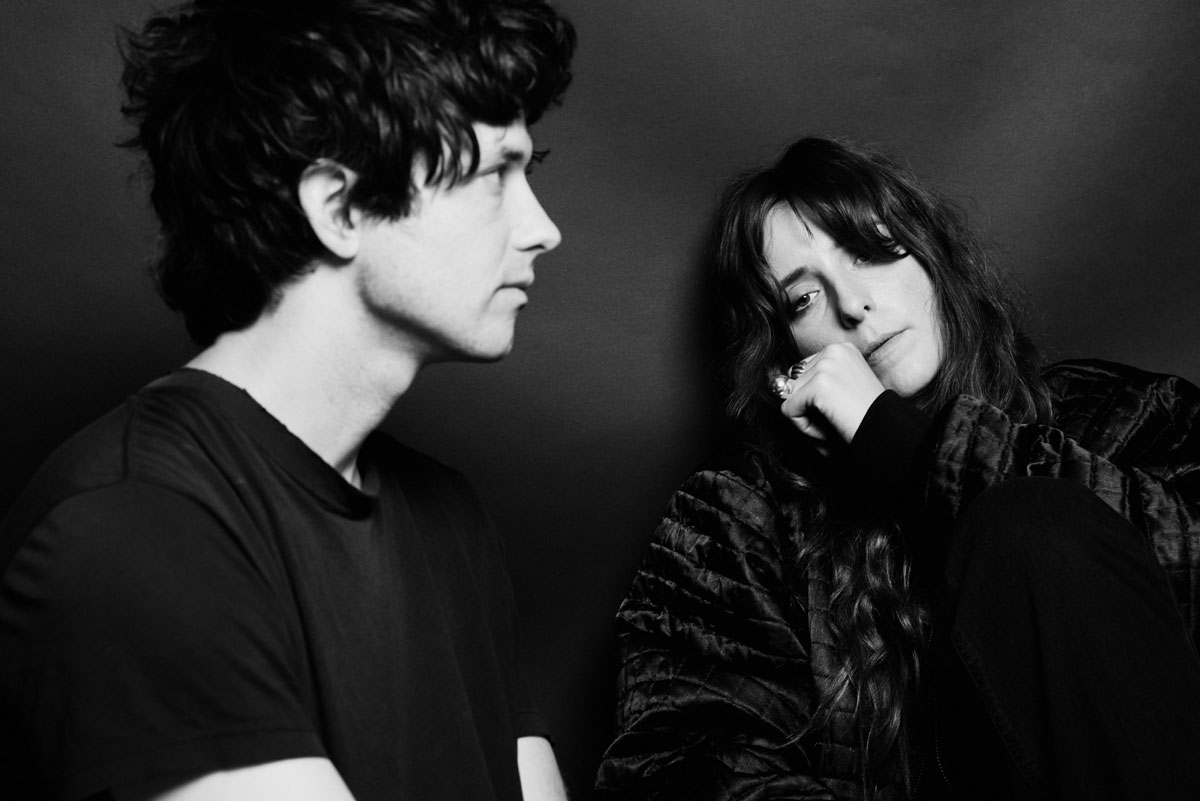A plea for love, diligence and not giving a fuck.

On the heels of releasing two critically acclaimed records, Glamcult once again caught up with Victoria Legrand during her latest world tour with long-time partner Alex Scally. Because there’s always more—wisdom—to be found in anything signed Beach House.
While preparing this interview we came across your recent fan Q&A on reddit. God, they know so much about you!
I know! We really appreciate our fans; I think it’s cool to have that sweet relationship. It’s interesting how much people get into something they really like. They enjoy knowing about stuff and knowing about the music. It’s overwhelming and eye-opening as a musician. There are people caring about what you do, which is really wonderful. Especially in this world with a lot of hatred coming from everywhere, when anybody shows love on any scale—small or large—that’s beautiful. Love is beautiful.
Beach House has been going strong for a long time now and what we see is your beautiful act with a beautiful product. But how do you and Alex keep each other inspired?
I think that’s our friendship in general. We really are best friends; we click on many levels. We keep each other challenged; we support and surprise each other. I think that any good friendship is like that. The reasons that bands don’t last long is because they grow apart, and I think that with our band it’s really just about becoming closer and closer. While you get closer on all levels, your understanding of each other deepens. There is openness, there’s exchange—the creativity doesn’t suffer with all these levels of understanding. And, you know, tension. Not all good things come easily, there has to be consonance in order for drama to occur. Things must be difficult for things to be good. As we grow closer and closer, our work continues to thrive and exist. The centre isn’t falling apart; it’s becoming stronger. We just released two albums in a year because we keep going. After we finished Depression Cherry we just kept writing. We didn’t ask why.
Are you hoping your music will only get stronger as your friendship grows better?
I don’t know about stronger; I don’t want to put pressure on anything ever. I want things to be able to exist and not put too much seriousness on them. We don’t make a commercial product. Like every other bit of music, it’s here for people to either enjoy or not, to find something in there, to help them understand living or dying. It’s music, you know, it’s free in a lot of ways. It doesn’t have to be part of all of the ugliness and bullshit. It’s a place where all humans can exist and feel things. So I don’t know what will happen in the future, I just try to take everything on a day-to-day basis.
We really enjoyed the talk that you had with Christopher Owens for HERO. You described yourself as being quite punk and that’s interesting, coming from you.
I forget what exactly happened in that interview but I think it’s the not giving a fuck. For us what makes sense is doing what we do, not over analysing it, and there is a DIY aspect, of course. We don’t want to have a super comfortable existence and we enjoy the control of our own aesthetic. In that sort of expression or gesture, I think we echo a punk mentality. Also, I think we were talking about Depression Cherry being more immediate. There’s something mildly political but also mildly confrontational. There’s a lot in there—a lot of human things and narratives. We insist on doing things our way. We really can’t be bothered with caring about what people think about it, then the art will be damaged and we’ll be damaged. We’ll be messed up and not be ourselves. The most badass thing you can do is just be your-fucking-self.
One might expect a Beach House concert to be gloomy or dreamy, but there’s actually a lot of power in your shows. Perhaps that’s that punk quality too.
Yeah, it’s not all dreamy! The whole thing about ‘dream pop’, I don’t really care about that peculiar classification. In feeling our music, I feel many things that are not ‘dream’ or ‘pop’. Some of it is so physical; there’s much more than just two words. I appreciate you saying that because it shows you’re open and observing. You’re using your facilities as a human being, processing stuff—not just going to the show and being, like: ‘Awwww, this is chill.’ Because it’s not! [Laughs]
Is there a specific story that inspired the song Common Girl?
No, but there is a specific feeling, like a character in a movie. There’s some cruelty in there. There’s sarcasm and commentary: a kind of ugliness about people who are empty inside. It was a specific feeling, like a bite in my mouth. A raw feeling that was more direct than Depression Cherry songs. All songs on Thank Your Lucky Stars are like that, always addressing something that seems more direct. There is loneliness, there is ugliness, there is evil, there is taking advantage, there is sadness, there is the city, there is the downtown, there is a lot of things that form a narrative. But I am a writer, so I just follow a specific feeling. I follow the taste in my mouth. Every song comes out differently.
Thank you so much. Is there anything you’d like to leave us with?
Thank you for having this interview with me. It’s a little hard on tour sometimes because of the crazy schedule, but I’m glad we got to talk. If I only have one thing to say, it’s that at this time in history we need to really be sensitive to one another, love one another very much. I’m very grateful for all the love and support, I hope more people can feel that way.
Notifications